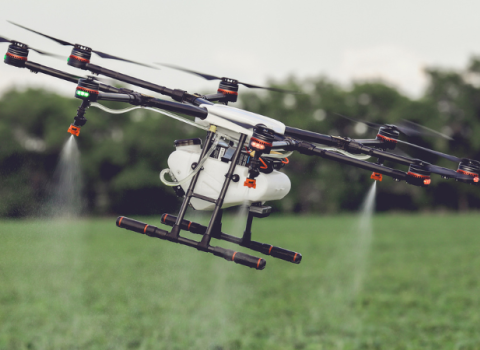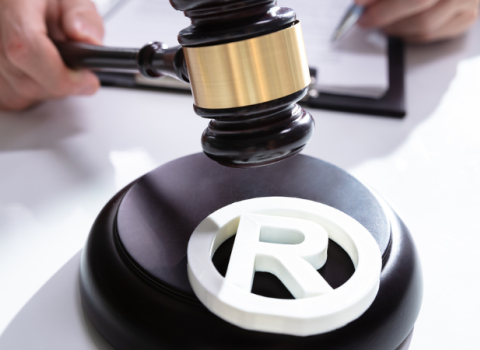There are several barriers holding back science-industry collaboration, but the most urgent one is the reluctance to protect intellectual property in advance of publishing research results, according to two of Poland’s leading patent attorneys
As delegates at Pharma Day last month in Warsaw agreed, a lot of Polish scientists are not aware of the benefits of intellectual property (IP) protection. And even if they are, they choose the publishing path instead.
As Poland is making moves to lift barriers to investing in drug discovery, convincing scientists to choose IP protection over publishing their results is of utmost importance, the meeting held to highlight the barriers to effective collaboration between research and industry was told. Without IP, the much coveted big pharma investments in drug discovery projects are unlikely to materialise anytime soon.
To find out more about the reluctance of Polish scientists to patent their discoveries and why they prefer to publish, Science|Business interviewed Magdalena Tagowska and Agnieszka Żebrowska-Kucharzyk, patent attorneys at PATPOL, one of Poland’s top patent law firms.
Many scientists seem to be discouraged after a failed first attempt, as filing in an application requires a lot of effort. “Sometimes you have to do more than one application in order to get some kind of success,” said Tagowska. Unfortunately, that is when scientists decide it is easier for them just to publish and forget about patenting altogether.
Filing a national patent application is quite easy because the costs are low. However, it gets harder once scientists decide to register abroad, with many steps required to get their application ready, Tagowska said. “There is too much burden on the scientist to do everything.”
Technology transfer offices (TTOs) can help out in this process, taking on some of the administrative burden. But, the relationship between scientists and TTOs varies across universities and it depends on the people working there. “Some do a great job and really help scientists, but others don’t,” said Żebrowska.
First, scientists have to first convince their transfer office they have a good invention. Second, scientists need to secure the funding for the application costs, then they have to deal with a lot of paperwork, inspections and reviews. “It is very difficult,” Tagowska said.
It is also the case that not all universities are interested in commercialisation and patent applications. “In Poland we need more regulation in this area,” said Żebrowska. Governments should encourage commercialisation of research, but at present scientists in Poland are not used to being involved in innovative projects. “They are doing science just for the sake of it and they are not looking for something that can be applied,” said Żebrowska.
Some universities offer little or no incentive for scientists to get their discoveries commercialised. “There is no point in making a patent if you don’t plan to do anything with it,” said Tagowska. “There should be some mechanism helping scientists go further to commercialise their invention,” she said.
However, change may be coming, with EU funding educating students in IP management and free-of-charge tools such as the IPR Helpdesk now available. “We think these are very useful and we hope that the next generation of scientists will realise how useful it is to know more about patenting, said Żebrowska.
But while the system works elsewhere, “here we have some problems with it,” said Tagowska.
“We need some examples to show the system can work,” she said.
Getting the right IP expertise
Very often researchers are disappointed to find out that their “invention” is already patented. In other cases, they may succeed in registering the patent but it turns out there is no interest from investors. “I think the decision-making process should be simplified and made by people who have a feel for the industry and actually know what is needed,” Tagowska said.
However, there are not many patent experts who can help scientists with the evaluation of their projects. Poland has fewer than 1,000 patent attorneys of whom only about 300 are active. And not many of them have technological background. “Most of them are lawyers and deal with trademarks and designs and litigation,” said Tagowska.
But interest in the profession is growing with more and more attorneys are following international patent databases to learn the best way to help out Polish scientists. “We followed the progress of international patents and we learned from that,” Tagowska said.
Is big pharma ready to invest in Polish IP?
In the past five years the number of patent applications in biotech and pharma has grown on the back of increasing levels of public funding, with Polish science projects attracting money from the EU. As a result, “We observed a great change in the way scientists are thinking and their attitudes towards patents,” said Żebrowska.
But while scientists may think their projects speak for themselves, to attract interest from big pharma they need to be more proactive. Big pharma is not yet ready to acquire Polish IP. “We do not see of that kind of cooperation,” said Tagowska.
Making progress will require a change of mind-set. In Poland, the government and the universities are not encouraging scientists to commercialise, preferring them to publish instead. Being granted a patent is seen as a lesser achievement than doing the science. “If you want to get recognition in the scientific world you should not patent. This has to change,” Żebrowska said.
You can find more details about the BASTION project by clicking here or by sending an email to Karolina Dzwonek, Innovation Manager at BASTION.





 A unique international forum for public research organisations and companies to connect their external engagement with strategic interests around their R&D system.
A unique international forum for public research organisations and companies to connect their external engagement with strategic interests around their R&D system.